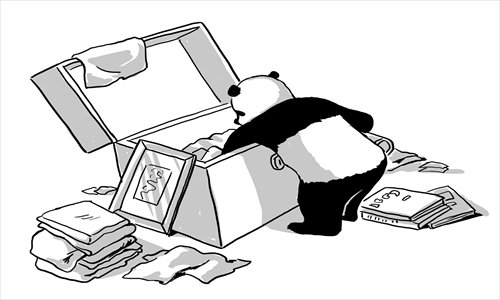Govt reshuffle aimed at better service

China unveiled its plan to streamline the government functions on Sunday, with the number of ministries under the State Council being reduced from 27 to 25.
Yet some pointed out that even after the seventh restructuring of the State Council, China still has more governmental agencies than many other countries in the world.
But the key problem is not the quantity of the governmental agencies, but the transformation of government functions. This is the first time that China emphasizes both institutional restructuring and functional transformation at the same time.
The restructuring this time gets right down to the point: transforming governmental functions and improving efficiency to build a service-orientated government.
The public has an increasing demand for services that facilitate their economic and social activities. As for enterprises, under market economy, they direly need an open market where they could compete on an equal basis.
Therefore, they demand a service-orientated government which can guarantee a favorable development environment and decrease enterprises' costs, thus benefiting the development of the real economy.
Facing the diversification of interests and a society moving forward to the rule of law, the basic demand of the public is for the government to safeguard fairness and justice in society.
The goal of building a service-oriented government has been clear for many years. Governmental reform and transformation cannot be achieved in a single step, but must be steadily moved forward.
The recently issued plan on the institutional restructuring and functional transformation of the State Council emphasizes the devolution of power.
The reforms of the Ministry of Railways are more or less what were expected. Separating government functions from the management of enterprises is the trend of the times. Railways in many countries are under commercial operation.
Decentralizing the administrative power of the Ministry of Railways while accelerating the commercialization of the railway industry helps realize better functioning and more efficiency.
Another notable change is the restructuring of food and medicine supervision.
In the past, the supervision of food and medicine has been troubled by the duplication of functions and overlapping management.
At least nine governmental agencies were responsible for food supervision, and liability was unclear once problems happened.
But according to the latest restructuring plan, the position of the State Food and Drug Administration will be raised to a higher level and it will conduct unified supervision on food and medicine security.
The restructuring is moving in the right direction of streamlining agencies and enhancing efficiency. But a problem that cannot be ignored is that restructuring involves complicated interests, including the interests of different government agencies as well as officials.
The restructuring in 2008 left many problems related to the transition of power unsolved, and we should learn lessons from the previous restructuring and make early preparations for possible obstacles.
The article was compiled by Global Times reporter Yu Jincui based on an interview with Chi Fulin, president of the China Institute for Reform and Development and a member of the Chinese People's Political Consultative Conference. yujincui@globaltimes.com.cn
